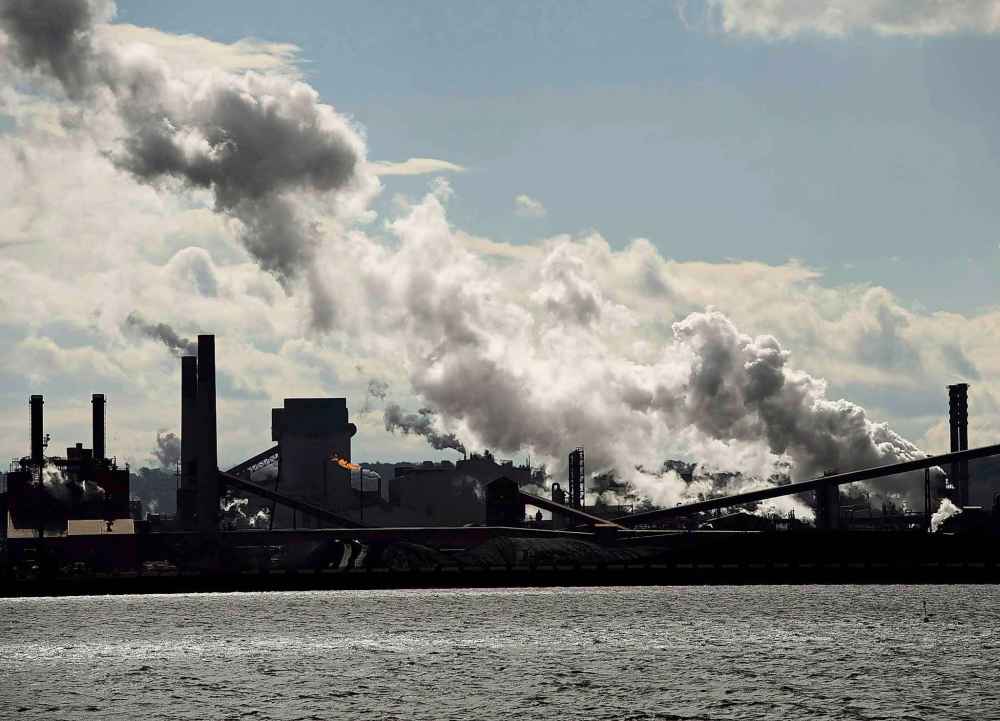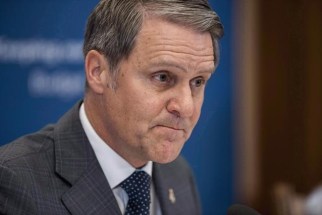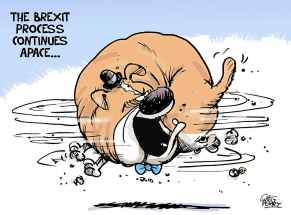Logic of carbon tax commendable
Read this article for free:
or
Already have an account? Log in here »
To continue reading, please subscribe:
Monthly Digital Subscription
$0 for the first 4 weeks*
- Enjoy unlimited reading on winnipegfreepress.com
- Read the E-Edition, our digital replica newspaper
- Access News Break, our award-winning app
- Play interactive puzzles
*No charge for 4 weeks then price increases to the regular rate of $19.00 plus GST every four weeks. Offer available to new and qualified returning subscribers only. Cancel any time.
Monthly Digital Subscription
$4.75/week*
- Enjoy unlimited reading on winnipegfreepress.com
- Read the E-Edition, our digital replica newspaper
- Access News Break, our award-winning app
- Play interactive puzzles
*Billed as $19 plus GST every four weeks. Cancel any time.
To continue reading, please subscribe:
Add Free Press access to your Brandon Sun subscription for only an additional
$1 for the first 4 weeks*
*Your next subscription payment will increase by $1.00 and you will be charged $16.99 plus GST for four weeks. After four weeks, your payment will increase to $23.99 plus GST every four weeks.
Read unlimited articles for free today:
or
Already have an account? Log in here »
Hey there, time traveller!
This article was published 01/04/2019 (2450 days ago), so information in it may no longer be current.
Talk about reducing carbon emissions worked politically for the Liberals in the 2015 election. All Canadian governments since Brian Mulroney have talked about reducing carbon pollution and the public was often happy to hear about it.
This week, however, Justin Trudeau’s government started collecting a carbon tax in Manitoba and three other provinces in order to reduce carbon emissions, as it said it would four years ago. A part of the public doesn’t like that one bit. The Liberals think it’s a political winner for them. The Conservative opposition thinks they’re dead wrong.
Justin Trudeau’s government started collecting a carbon tax in Manitoba and three other provinces in order to reduce carbon emissions
In a country where all the political parties read the same polls and usually step on each other’s toes trying to court the same voters, it’s a surprisingly stark contradiction between the leading parties.
In 2015, when the country was tired of prime minister Stephen Harper, almost anything could work for the Liberals. Their program of legalizing cannabis, budgeting for a few small deficits and welcoming Syrian refugees was not troubling enough to make Canadians want to keep Mr. Harper in office. The carbon tax was part of that program, too.
The Liberals, who believe their brilliantly conceived program won the election, are gambling that the carbon tax they promised in 2015 will still be popular when they carry out the promise in 2019. If Stephen Harper were still leading the Conservatives, they might be right.

In 2015, however, it was still possible to suppose: “Sure, there will be a carbon tax and someone else will pay it, not me.” Starting this week, that idea is out the window. For people in Saskatchewan, Manitoba, Ontario and New Brunswick, the carbon tax is starting to have a small but noticeable impact on everyone who heats a home, drives a vehicle or otherwise consumes carbon — which is to say everyone under the sun, to a greater or lesser degree.
People in British Columbia, Alberta and Quebec are already paying carbon tax in one form or another and it has done them no obvious harm. As time goes by, Manitobans, too, may find that the higher prices are easily absorbed by most people and pleasantly offset for many by a new wrinkle in the income tax. Just at this moment, as the tax takes effect, it feels to some like all pain, no gain.
It’s not surprising that some Manitobans think a carbon tax will work and some think it won’t
The gain is supposed to be that we all look for more efficient ways to use carbon so that we burn a little bit less of it and, gradually, year by year, curb the steady increase in the tonnes of greenhouse gas we pour into the atmosphere. This should allow Canada to make a strong case to other countries that they should do something along the same lines. Then eventually, after a few low-lying coastal cities disappear under the rising oceans, the worldwide increase in carbon pollution is controlled and humanity finds a way to continue inhabiting this planet.
For voters who expect to live another 70 years, that long-term calculation has direct, personal relevance. For those who have already reached middle age and have achieved a level of comfort by burning carbon without regard to the consequences, the logic of the carbon tax has less appeal. It’s therefore not surprising that some Manitobans think a carbon tax will work and some think it won’t. This year’s election will be long gone, however, before we know who was right.












